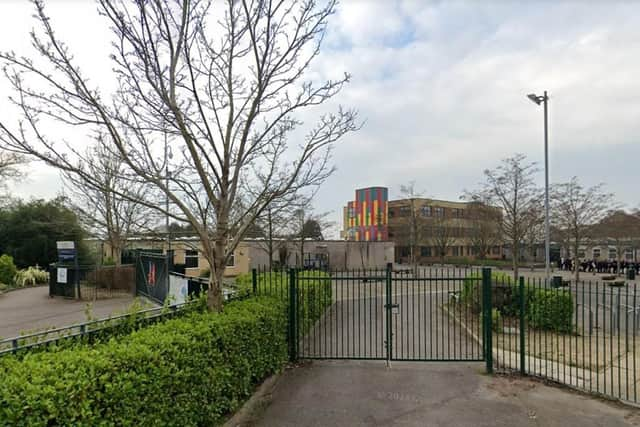The ‘Father of the Iron Trade’ Henry Cort who patented wrought iron processing ‘stole the technology from 76 Jamaican slaves’
and live on Freeview channel 276
Research from University College London (UCL) has brought Fareham’s industrial heritage and historic association with Henry Cort into question. Henry Cort patented ‘The Cort process’ in 1784 which allowed wrought iron to be mass-produced from scrap iron – he is celebrated as a maker of the modern world and was named the ‘Father of the Iron Trade’ after his death in 1800.
READ NOW: Community garden
The legacy that surrounds Cort was branded a ‘myth’ in a recent paper authored by UCL lecturer Dr Jenny Bulstrode. The findings suggest that the technology was stolen from 76 Jamaican metallurgists ‘who developed one of the most important innovations of the industrial revolution’.
Advertisement
Hide AdAdvertisement
Hide Ad

The paper traces how Cort shipped machinery from an ironworks in Morant Bay Jamaica to Portsmouth after the British government shut down foundries in the colony. Many of the 76 metalworkers were enslaved people trafficked from West and Central Africa where the technology originates.
Although he was born in Lancaster, Henry Cort took over an iron foundry in Funtley, a small village north of Fareham, in 1775.
Councillor Sean Woodward, leader of Fareham Borough Council, described the findings as ‘the industrial espionage of its day’.
‘It looks like he stole the technology from 76 Jamaican slaves,’ he said.
Advertisement
Hide AdAdvertisement
Hide Ad‘I suppose one could say he got his just deserts because when it turned out that the money he used for his business had been embezzled out of the Royal Navy he lost his patents and died destitute.
‘That was one person involved in the exploitation of the colonies who actually paid the price.
‘If there’s some great uproar that transpires I suppose we might contextualise Henry Cort because we’ve got a big ironwork exhibition and of course, we have Henry Cort Community College.
‘There’s Cort Drive where the school is and Henry Cort Way which is the Eclipse bus route – then there’s the millennial sculpture park.
Advertisement
Hide AdAdvertisement
Hide Ad‘The black in Fareham’s crest which is the background represents Fareham’s history in iron making and smelting.
‘The process revolutionised warfare and the industrial revolution – now somebody’s looked a little bit closer at where it actually came from.’
Dr David Andress, professor of modern history at the University of Portsmouth said the paper comments on a ‘wider sense’ that West and Central Africans had ‘enormous expertise’ in iron working ‘which Britain prides itself on’.
‘Europeans understood this from the middle ages,’ he added.
‘By the 1700s it’s clear that a lot of Africans were working as experts in metallurgical iron factories in these slave colonies.
Advertisement
Hide AdAdvertisement
Hide Ad‘That’s a real context in which to understand that certain kinds of innovation get patented in the British context and then become what is thought of conventionally as the narrative of the industrial revolution.
‘This extraordinary coincidence that is at the heart of the story, this plant in Jamaica which was working in this innovative way is demolished and shipped in parts to Portsmouth and then suddenly a year later Henry Cort patents that exact way of doing things.
‘There’s no smoking gun, he didn’t write a letter saying he stole it from Africans, but it would be an extraordinary coincidence if there wasn’t a connection.’